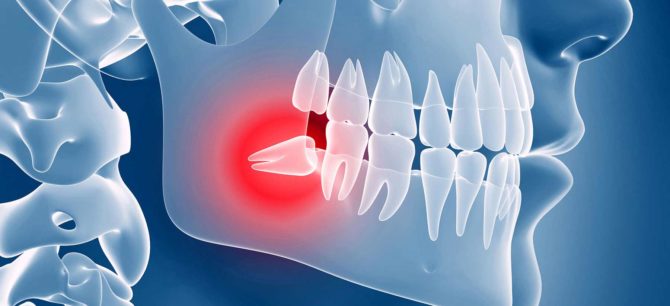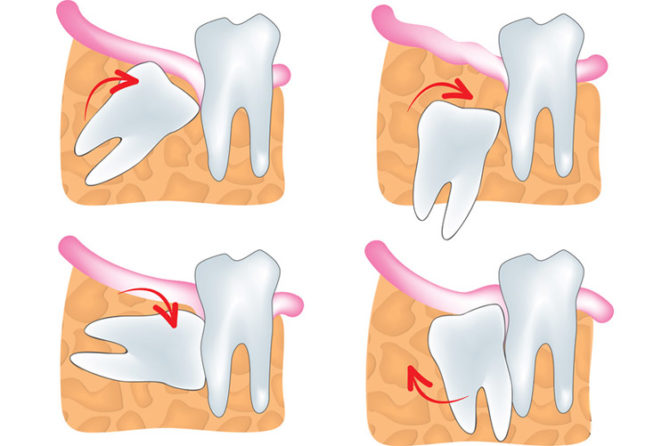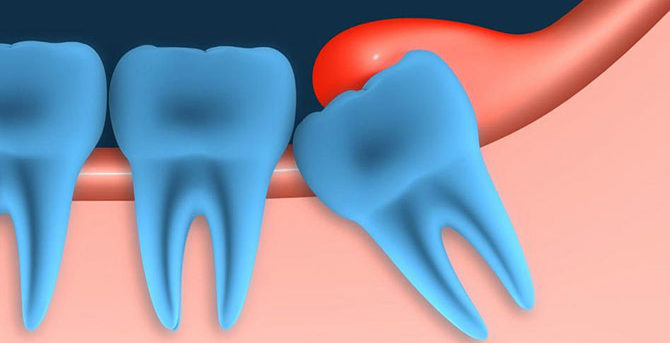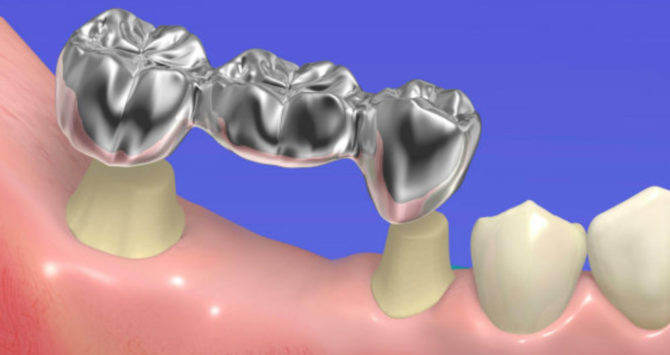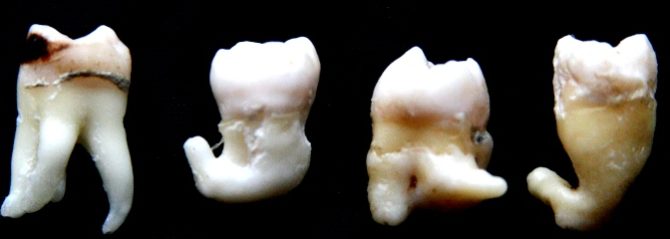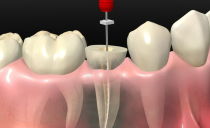Wisdom tooth - remove or treat how wisdom teeth are treated and whether it hurts
Eights are considered vestigial organs, the need for them disappeared during the evolutionary development of man. They practically do not participate in the process of chewing food, therefore dentists often recommend removing wisdom teeth instead of treating.
Content
Wisdom Tooth - Remove or Treat
A wisdom tooth does not have a standard number of roots and canals, so it is considered a real medical mystery. In some people, it may never break through the gum throughout life, while in others 4 eights erupt at once. Sometimes wisdom teeth are activated after any emotional upheaval, childbirth or severe illness. These dental units have no milk analogues.
If the figure eight does not develop correctly and interferes with the remaining teeth, the following complications may develop:
- inflammation of the soft tissues of the oral cavity (stomatitis, glossitis and other diseases);
- malocclusion;
- caries of neighboring molars;
- inflammation of the trigeminal nerve, which is very painful;
- cyst and swelling.
If a person has a fever, a headache, a gum swelling, and facial muscles twitch, then the eight should be removed even with incomplete eruption. In this case, doctors perform an operation to remove under local anesthesia, the question of the possibility of treating a wisdom tooth and adjacent tissues is not even considered, since the risk of inflammation and generalization of the infection is too great.
Indications for removing a wisdom tooth
If the wisdom tooth is completely erupted, an indication for its urgent removal may be:
- lack of space needed for proper teething, which is why the eight interferes with the rest of the teeth;
- the presence of carious cavities;
- severe pain, including when swallowing;
- the presence of a cyst in the jaw (regardless of its exact location);
- the formation of an abscess of the gums or cheek mucosa;
- regular mucosal injury due to an incorrectly located eighth tooth.
Wrong growth
There are cases when the eights grow to the side or down. In this case, there should not even be a question whether it is worth treating a wisdom tooth - or a person will remove the rudiment, or it will lead to serious complications.
Pericoronitis
With the formation of the gingival hood over the wisdom tooth, the molar is not always removed - sometimes they try to cure it. In this case, the gum is simply cut with a scalpel or scissors, giving the dental unit the opportunity to develop further. But repeated inflammation of the excised hood in 98% of cases leads to the extraction of eight. Developing pericoronitis is dangerous for possible dental complications, therefore, with this pathology, doctors remove the wisdom tooth in order to preserve neighboring molars.
Caries
From caries, wisdom teeth are treated, but not always. With serious inflammation and a deep carious lesion, the wisdom tooth is removed, since it will still not be possible to cure it, moreover, the neighboring molars can affect the disease. To avoid serious complications, it is better to remove the figure eight with caries immediately, without waiting for swelling of the gums or the development of flux. If caries is detected in the early stages, then extraction will take place without serious consequences.
It is better to remove the wisdom tooth at a young age, in this case you definitely do not have to treat bone pathologies and do osteological plastic surgery. In a young person, the bone is still not hard enough and is capable of regeneration. With extraction at a more mature age, problems often arise with overgrowth of the hole, therefore, sutures are always imposed on the wound surface.
When to treat a wisdom tooth
Sometimes dentists are advised to keep the figure eight. It makes sense to try to cure the third molar if it is not inflamed, completely cut through and does not hurt. It can be useful when:
- installation of the bridge when it is used as a support;
- the absence of chewing teeth, when the third molar can take on their functions in the presence of an antagonist.
They try to save the eight if there are no six and seven in the jaw. It can be relied on for prosthetics, in addition, all molars serve as stabilizers of the jaw, and when they are removed, the dentition begins to loosen gradually.
If the wisdom tooth hurts, it can also be treated, but the doctor should decide on the appropriateness of the therapy. Indications for removal and treatment in this case will be standard.
After the first pain appears, you should go to the dentist. If it is not possible to contact the dentist in the next few hours, you need to take some kind of analgesic drug:
- Ketanov.
- Analgin.
- Ketorol.
It is better to combine it with Ibuprofen or Nimesil to stop inflammation. But you cannot focus solely on pills, they will only drown out the symptoms, and the diseased tooth will continue to decay and spread the infection to neighboring molars.
Complications after removing the figure eight
Possible complications after extraction include:
- alveolitis, which without antibacterial therapy can develop into osteomyelitis;
- development of fibrous cyst;
- soft tissue infection on one side of the jaw.
After extraction of the wisdom tooth, an impressive hole is formed in its place, which can cause malocclusion, distortion of the dental row and facial asymmetry. In some patients, after tooth extraction, numbness of the tongue and lips occurs. Usually, this feeling lasts a short time, if the symptom does not disappear a few hours after visiting the dentist, you should contact the dentist again.
Why eights are hard to treat
It is the eights because of their inaccessible location are most prone to caries. Due to the same local feature, it is difficult for dentists to treat a wisdom tooth with ordinary boron. The complexity of the therapy of eights is also determined by the curvature of their roots, the atypical structure and the absence of the exact number of dental canals.
Treatment of a wisdom tooth may not be possible if the patient, due to his anatomical features, cannot open his mouth wide, or if he has a strong vomiting reflex. Often the lack of therapy is associated with the reluctance of the person himself to suffer inconvenience for no apparent reason, it is this factor that becomes the main reason why patients do not treat wisdom teeth.
Does it hurt to treat a wisdom tooth
Wisdom teeth are restored under anesthesia, so it is not painful to treat them. In some clinics, patients may even be offered surgery under general anesthesia. When treating eights, dentists prefer to use strong anesthetics, so patients should not feel pain at all.
How to treat wisdom teeth from tooth decay and other diseases
The treatment of eights with their correct location in the jaw is carried out according to the same scheme as in the treatment of other molars. Therapeutic procedures carried out on the teeth of wisdom:
- caries treatment, in which nerve removal is not required;
- elimination of pulpitis (it makes sense to start treatment only with the normal structure of the root system, otherwise it will not work to remove all pathogens):
- pulp removal;
- canal cleaning;
- filling channels and pulp chamber;
- restoration of tubercles and fissures;
- therapy of periodontitis in the oral cavity.
If during the examination of a patient with periodontitis, granulomas, cysts or cystogranulomas are found, extraction of the eight will be shown. Such wisdom teeth become a source of infection, so there is no point in treating them.
Whether it is worth treating eights, everyone should decide independently. If the dentist confirms the possibility of saving the tooth, you should think about the feasibility of extraction.

